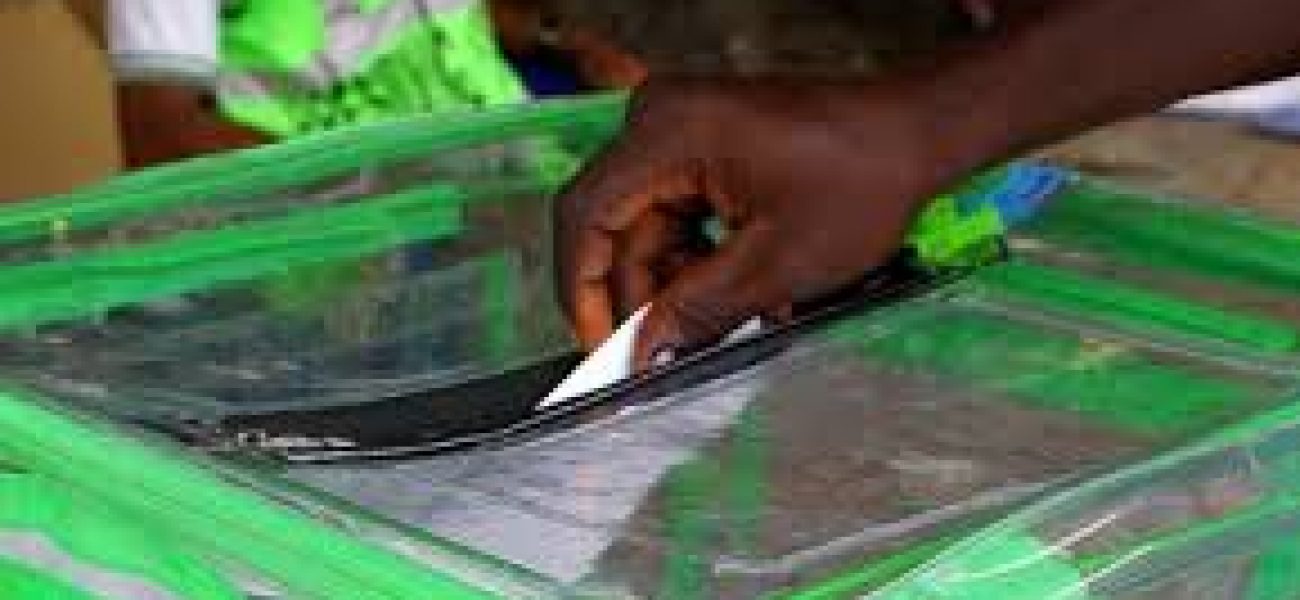The legislative process for the National Electoral Offences Commission Establishment Bill, 2021 is in progress, with the Senate holding a public hearing on the bill on Wednesday, April 28. The bill is sponsored by Senator Abubakar Kyari and co-sponsored by the Deputy President of the Senate, Senator Ovie Omo-Agege and Senator Kabiru Gaya. The growing trend of electoral offences has plagued Nigeria’s elections for so long, with several offenders going scot-free. Civil Society groups have made several calls for the establishment of an Electoral Offences Commission to effectively tackle electoral malpractices and bring perpetrators to book. Observers believe that this will reduce the burden on the Independent National Electoral Commission (INEC) to conduct elections and deal with other related issues.
The bill seeks to establish a Commission comprising a Chairman, a Secretary, 10 representatives from select government ministries and agencies, as well as six other Nigerians representing each of the geo-political zones. Interestingly, at least two of these geo-political zonal positions are reserved for women. However, the membership of the Commission is rather broad and should be downsized to save cost of governance. Also, the bill (Clauses 23 and 32) seeks to criminalise smear campaigns against candidates in an election and hate speech intended to prejudice the results of an election. Smear campaigns which have become a recurring trend in Nigeria’s elections seem to be taking the place of issue-based campaign, and therefore need to be curbed.
However, certain provisions stipulate rather stringent penalties for various classes of offenders and need to be reviewed to reflect current realities. Some of these include an imprisonment term of 20 years for judicial officers or officers of a Court/Tribunal who pervert justice, and a fine of N30,000,000 in lieu of an imprisonment term set for election officials and security personnel. On the other hand, some of the penalties proposed for erring candidates at an election are inadequate. For instance, for offences relating to election expenses, Clause 31 proposes a minimum imprisonment term of six months and a fine amounting to the stipulated maximum sum of election expenses for the elective office in question. Election Finance is a major component of elections, as high campaign costs constitute a barrier to inclusivity in elections. Therefore, offences relating to this subject should have stiffer penalties, to curb excessive expenditure by political parties and their candidates. Further, the offence of undue influence contained in the bill, should be expanded to include the act of inducing or compelling an election official to act in a certain way, in which he or she would not have ordinarily acted. This will tackle the emerging incidence of political actors coercing election officials to obtain their desired results, and also protect election officials who find themselves in such a position in the course of discharging their duties.
Another proposed provision which ought to be reviewed is Clause 33 (4) of the bill, which requires that a judicial officer gives priority to electoral offences over all other matters. This may be impracticable. Instead, a timeframe should be stipulated within which electoral offence cases should be heard and concluded. Also, Clause 34 (3) which allows the Commission to accept gifts from persons and organisations, has a high potential to raise conflict of interest and interfere with the dispensation of justice by the Commission, and should be removed from the bill in its totality.
Generally, the bill seems poised to address the incidence of electoral malpractices by providing a framework to punish offenders, to serve as a deterrent to potential offenders. This will in turn, contribute towards the much needed electoral reform, aimed at deepening democracy in Nigeria.
A copy of the bill can be found here

